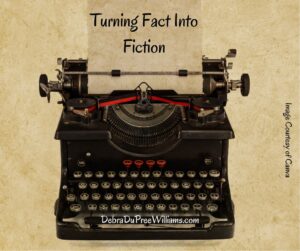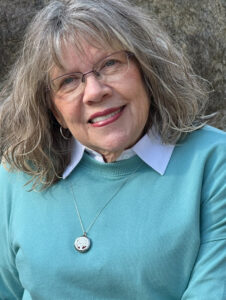Turning Fact Into Fiction
 If you are a writer and you don’t know of or don’t follow Jane Friedman, perhaps you should. She always has interesting viewpoints on her blog posts, and she features experts who share their knowledge with us. The post that caught my attention this week featured Caroline Leavitt relating her story about turning factual events into fiction.
If you are a writer and you don’t know of or don’t follow Jane Friedman, perhaps you should. She always has interesting viewpoints on her blog posts, and she features experts who share their knowledge with us. The post that caught my attention this week featured Caroline Leavitt relating her story about turning factual events into fiction.
Find that article here: https://bit.ly/3Qh9KpE
Ms. Leavitt had good advice for us. In our litigious society, we must tread carefully through what could be a minefield of publication. Especially if we write about real people.
Turning Fact into Fiction @DDuPreeWilliams #writing #truth #fiction Share on XMY FIRST BOOK
In my first book, Grave Consequences, I loosely tell a story about a woman whose grave has been lost for years. This is the case with my great-grandmother. I did use her nickname, but not her real last name. I intertwined things I knew about her but fictionalized it to the point that none of my cousins knew it was she about whom I wrote.
As the genealogist in the family, I have acquired many records of our ancestors. Some of the things I’ve learned may not be very flattering, but one really shouldn’t alter history. When writing fiction, we can weave life events into our own narrative. In my great-grandmother’s case, she was left a widow with two small children, her husband having died at age twenty-eight. One of those children was my grandfather.
I took her story and wove it into a fictionalized account of actual events. My sister and I looked for our great-grandmother’s grave for over twenty years. My sister is in heaven now, but I still have no idea where Great Grandma’s grave could be. This missing grave became part of the story I wove into Grave Consequences.
MY SECOND BOOK
Book two, Grave Decisions, mentions some actual people as well. How was it okay for me to write about them? For one, there is no way anyone is alive today who knew them when they were on this earth, they lived so long ago. In fact, centuries.
Again, I took actual people and wrote my story, pure fiction, around things I’d learned about them. There are some facts in my story, but none of them are disparaging at all. Remember, this is my family. I would never want to show any of them in a bad light.
Authors get their ideas from life. Our imagination is an amazing gift from God, but it is another of God’s gifts when we can take that imagination and use things we may know about a situation or even a person and weave them into a fascinating story.
Be sure to read the article I linked to above. I think you will find it helpful should you decide to write about actual people or events. Remember to change your words enough that the actual people are unrecognizable in your story, and then let that imagination flow.
Blessings, y’all!
Another new one to me. I pray it blesses you today.

The Conversation
Thanks for sharing your thoughts and methods of turning fact into fiction, Debbie.
Great article shared. Gives lots of food for thought in fictionalizing stories that grip us.
Thank you for the great tips on writing. I would love to hear if you ever do find your great-grandmother’s grave. That is interesting to think of her life and what it must have been like, and then she is lost to your family, but her grave is still there, somewhere, like a cold case.